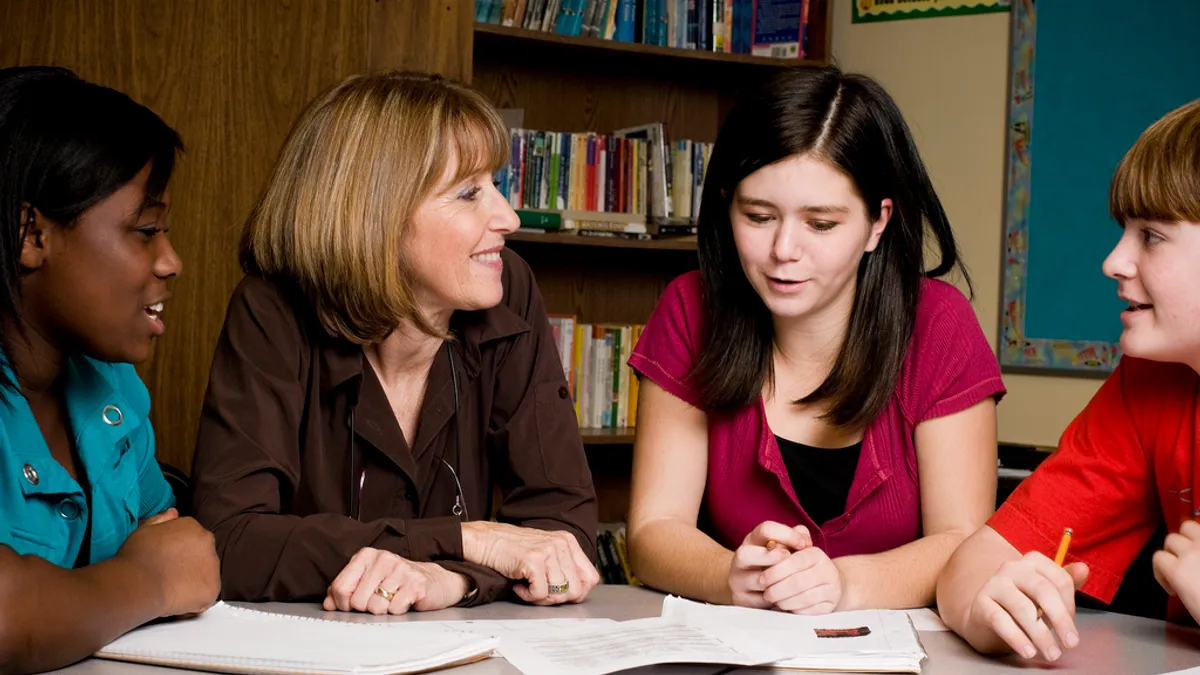If you've felt like the term “social-emotional learning” is gaining more buzz among educators recently, you wouldn't be wrong, according to a new study for Education Week.
The study, which was released by the publication’s research arm last month, found a steady increase in the number of educators who said social-emotional learning is very important to student achievement. That’s likely due to a combination of media buzz and, unexpectedly, accountability structures intended to monitor and ensure student performance. Still, teachers say they need more training, and schools are continuing to figure out how to build the development of skills like self-awareness, decision-making, and communication into effective instruction.
Growing interest
Over 700 people participated in Education Week’s study, most of them K-12 educators and administrators. The analysis also includes data from previous EdWeek studies that focused on student discipline and engagement.
Half of educators surveyed said that social-emotional skills get the attention they deserve in their school, but nearly as many said they don’t receive enough. And just one in three said they were very familiar with social emotional learning.
That may be changing. In 2015, 67% of educators said it was very important, compared with 54% in 2014. Over the past three years, researchers have found more educators and administrators stating that work on social and emotional skills could help with school discipline and climate.
Why the increase?
Media attention and the increased use of buzzwords like “grit” have probably played a big role in educators’ increasing awareness. In 2012, Paul Tough’s "How Children Succeed: Grit, Curiosity, and the Hidden Power of Character" became one of the year’s most widely read education books. Since then, the word has become engrained in educators’ vocabulary, particularly as students are being asked to grapple with changes to the way they learn, from online testing to longer school years and days in some districts.
But Holly Yettick, director of the Education Week Research Center and one of the authors of the study, says some of the focus from educators may come from a less obvious source: teacher evaluations. The study found that 59% of educators said classroom observations were the primary way students’ social-emotional learning was evaluated.
“If you think about who’s observing teachers, probably in the most typical scenarios, it’s probably the person evaluating the teachers,” Yettick said. Over a third of respondents said measures of students’ social-emotional learning were used to determine teacher professional development, and a quarter said they were used in professional evaluations.
But she also cautioned reading too much into the bump, too.
“It’s not necessarily the same group of people taking it both years,” she said. And she suspects many teachers have been aware for a long time that students’ relationship skills and self-discipline were important to their academics, even if they didn’t call it social-emotional learning.
How to implement social-emotional learning
The educators surveyed by Education Week identified a number of challenges, including limited time and teacher training. Over half said their teacher preparation programs did not prepare them to address students’ social and emotional learning. Most said they had had some training but wanted more.
Social-emotional-focused instruction is particularly tricky in high school, when students are older and classes are divided by subject rather than age or aptitude. Still, a report last year from How Youth Learn found a handful of high schools that had made social-emotional learning a key part of their school model.
A few of the strategies they use included:
- Advisory groups that place a small group of students together with a teacher mentor for a chunk of time (typically 30 minutes) every day to discuss their lives and school work and to practice social skills.
- Older student guides for incoming ninth graders, to ease the transition and help students quickly build bonds.
- Student-led seminars and class periods, where more proficient students coached less proficient students or led seminars.
Would you like to see more education news like this in your inbox on a daily basis? Subscribe to our Education Dive email newsletter! You may also want to read Education Dive's conversation with Denver Public Schools' ed tech chief, Kirk Anderson, about school innovation and bridging the teacher tech divide.













